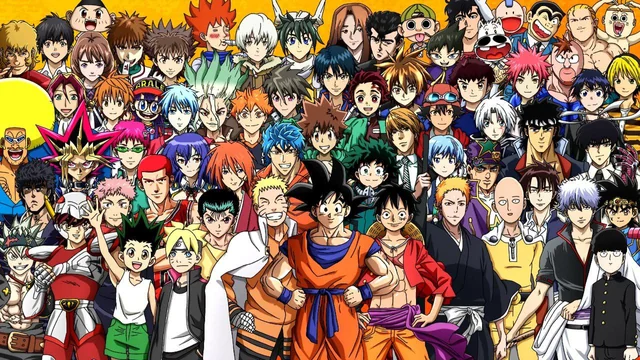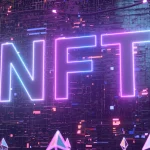Introduction
Anime has evolved from niche entertainment into a cultural export with immense political value.
It shapes perceptions, builds international ties, and projects national identity in ways few media forms can match.
- Introduction
- Anime as a Vessel of National Identity
- The Celebrity Factor in Cultural Diplomacy
- Political Messaging in Storylines
- Technology’s Role in Amplifying Influence
- Government Involvement and Regulation
- Audience Empowerment and Global Perception
- Economic Dimensions of Anime Diplomacy
- The Future of Anime as Political Expression
- FAQs
- Conclusion
As nations invest in cultural outreach, anime’s power to blend art and ideology has made it a strategic tool for diplomacy.
This article explores how storytelling, celebrity influence, and technology drive anime’s growing role in global soft power.
Anime as a Vessel of National Identity
Japan has long leveraged anime as a form of soft power, exporting not only entertainment but cultural philosophy.
Through stories emphasizing harmony, resilience, and innovation, Japan reinforces its image as a creative and peace-oriented nation.
Governments and global institutions have taken note, with other countries now developing their own animation sectors.
Co-productions between Japan, Korea, and Western studios reflect a new wave of cultural diplomacy built on mutual exchange rather than competition.
The Celebrity Factor in Cultural Diplomacy
Celebrities have become central to expanding anime’s international appeal.
Actors, musicians, and influencers who lend their voices or personas to anime projects serve as unofficial ambassadors of cross-cultural understanding.
Their involvement extends beyond performance—it creates bridges that connect fans across continents.
When a Hollywood actor voices a Japanese character or promotes a global anime premiere, it signals unity amid cultural diversity.
Political Messaging in Storylines
Modern anime increasingly reflects the world’s political and social tensions.
Themes of war, environmental decay, migration, and authoritarianism are explored through allegory, allowing creators to critique without overt confrontation.
This subtle form of political expression makes anime a mirror of global anxieties and aspirations.
By embedding political subtext within fantasy, creators can influence discourse while maintaining broad appeal.
Technology’s Role in Amplifying Influence
Streaming platforms and social media have turned anime into a real-time diplomatic instrument.
Shows released in Japan now reach millions worldwide instantly, shaping opinions and promoting shared values through digital accessibility.
Technology also enhances fan engagement through subtitling, dubbing, and interactive campaigns.
AI-driven translation tools ensure cross-border reach, while online fandoms foster a sense of global unity that transcends language and geography.
Government Involvement and Regulation
Many governments now fund anime projects to promote national identity or attract tourism.
Japan’s Ministry of Foreign Affairs, for example, supports cultural programs showcasing anime as a creative export of soft power.
Other nations have begun using anime-inspired campaigns to promote their culture abroad.
However, political involvement also raises questions about creative independence and whether state-funded storytelling dilutes artistic authenticity.
Audience Empowerment and Global Perception
Audiences today are active participants in shaping anime’s global image.
Fans dissect political messages, demand representation, and use social media to voice approval or protest.
Celebrities often echo these sentiments, reinforcing fan-driven activism that can sway industry decisions.
This evolving dynamic positions anime not just as a form of entertainment but as a cultural dialogue between nations and their citizens.
Economic Dimensions of Anime Diplomacy
Beyond culture, anime diplomacy has real economic impact.
Exports, licensing deals, and tourism tied to popular shows contribute billions to national GDPs, making anime both a cultural and commercial asset.
This economic potential encourages policymakers to protect and promote animation industries.
In turn, successful cultural exports strengthen a nation’s global standing while nurturing domestic innovation and pride.
The Future of Anime as Political Expression
As technology advances and global collaboration deepens, anime’s influence will continue to expand.
Emerging markets in Africa, Latin America, and Southeast Asia are fostering local stories inspired by Japanese aesthetics but rooted in regional politics.
The result is a more diverse global conversation where anime becomes a platform for empathy and shared values.
Through partnerships, creative freedom, and cultural exchange, anime is poised to become one of the 21st century’s defining tools of diplomacy.
FAQs
How does anime contribute to soft power?
Anime spreads national culture globally through engaging stories and artistic styles, fostering goodwill and positive perception toward its country of origin.
Do governments directly influence anime content?
In some cases, yes. Cultural agencies fund or promote anime that aligns with diplomatic goals, though creators often retain narrative freedom to avoid propaganda tones.
Why do celebrities play a key role in anime diplomacy?
Their global fame attracts attention to cross-cultural projects, broadening anime’s audience and helping bridge social and linguistic divides.
Can political themes in anime cause controversy?
Absolutely. Politically charged storylines can spark debate, censorship, or misinterpretation, especially when they challenge national narratives or sensitive issues.
Is technology changing how anime influences global politics?
Yes. Streaming, social media, and AI translation tools allow instant global distribution, making anime a faster and more effective diplomatic medium.
Conclusion
Anime has grown into a diplomatic powerhouse—one that communicates cultural pride while encouraging dialogue across borders.
Through celebrity collaborations, political storytelling, and technological reach, it has redefined how nations project identity and influence.
Looking forward, anime’s true strength will lie in balancing authenticity with universality.
If creators, fans, and policymakers sustain mutual respect and open collaboration, anime will remain a unifying force in an increasingly divided world.









